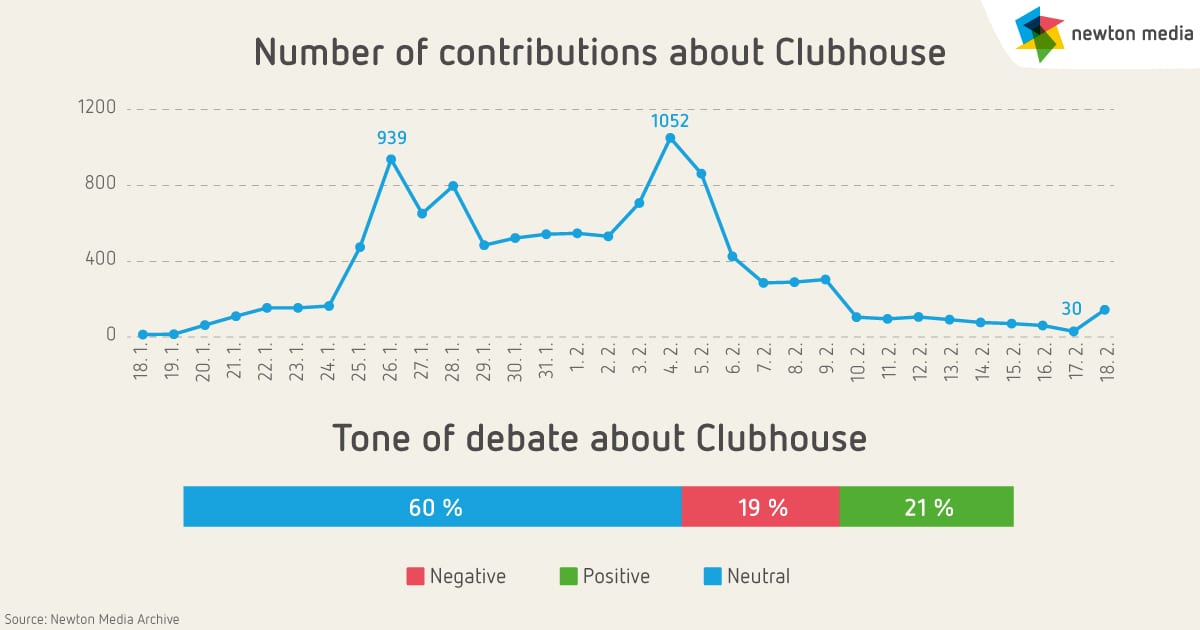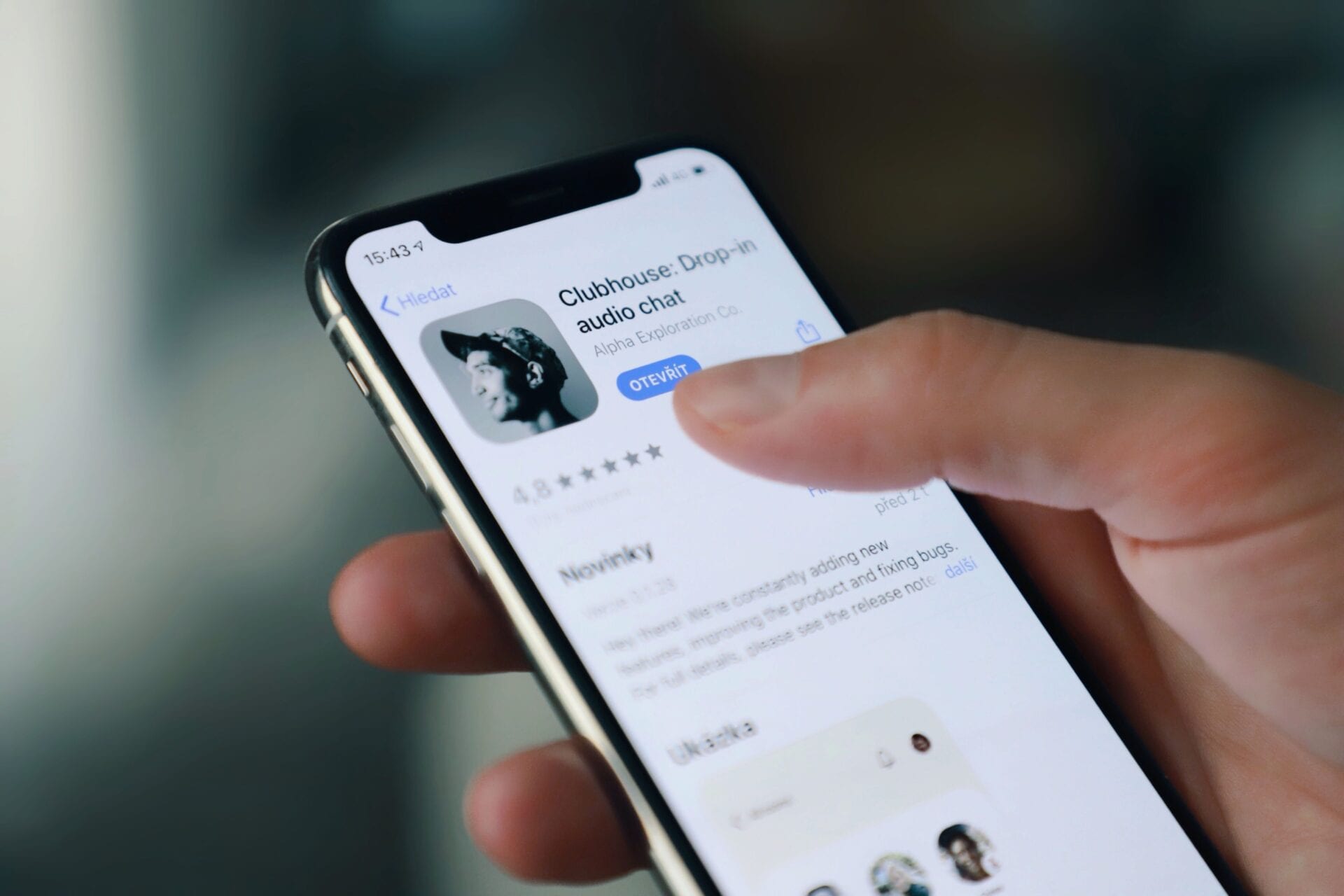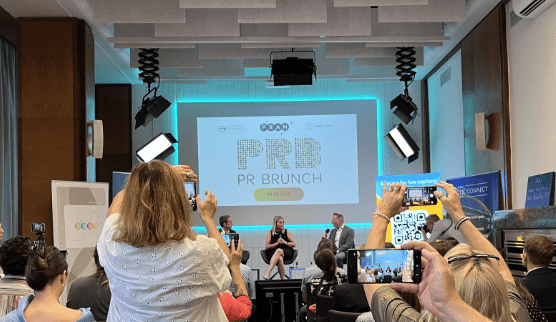Access to information only for a selected few. This might be the summary of the main difficulties of the new social network Clubhouse, which recently „celebrated“ its first month in the Czech Republic. From the beginning, the Clubhouse has profiled itself as a „cool“ communication platform that will have class, connect different layers of society, and provide debates with experts. At the same time, however, it is available to iOS users and by invitation only. Besides, serious debates were soon complemented by subjective opinions, and the exclusivity was replaced by the mass of the „chosen ones.“ These factors brought an unusually fast and dynamic development of debates to Clubhouse, and after a month it also brought a question of where will it go next?
Clubhouse, a new social network, which focuses only on voice communication, penetrated the Czech Republic in January. It provoked huge interest among users, who discussed this app on other social media channels a lot. Between 18 January and 28 February, there were 12.187 mentions p of Clubhouse, the largest part of which were shared on Twitter (66 %). These are some of the conclusions of a detailed analysis conducted by Newton Media.
Clubhouse users were evaluating the platform from the very beginning. „In the early days, the debates focused mainly on the exclusive nature of this network. Because Clubhouse app is only available for iOS and by invitations, users have been soliciting invitations on the networks or expressing their disadvantages with Android. First offers selling access or theories about Apple creating the network to increase its profit also appeared,” says Martina Maňhalová, an analyst at Newton Media.
Quo Vadis Clubhouse?
The peak of comments about the application occurred at the end of January and in the first week of February. Several institutions, companies, and political entities responded to the increased interest of users and began to organize various debates on Clubhouse. Their efforts, however, have not always been successful. An example is the channel Czech Radio Plus, which organized a discussion on 3 February on the topic „Will the Russian vaccine Sputnik V save Europe?“. Users on social networks objected to the fact that public broadcaster held a debate on a platform limited only to certain people. Similar opinions appeared on Twitter with users discussing whether it is appropriate for brands to associate with the exclusivity of the new social network. However, many users appreciated the innovative efforts and praised the debates.
At the end of February, Clubhouse became a less discussed topic and, according to many users, lost its uniqueness. „The massive increase of users and the number of new, often controversial, debate rooms have raised the question of whether the content can continue to enrich its users. The new social network has begun to be called an „online pub“ or a temporary solution for a long time in lockdown,” notes Martina Maňhalová, adding: „Although this platform is intended for users over 18, younger age groups are discussing appearance and sexuality. They often appreciated that thanks to the Clubhouse, they met new friends with whom they can openly discuss various topics.” Positive and negative attitudes towards the new social network are almost balanced, 21 % of users shared positive contributions, while 19 % approached it critically.

It remains to be seen which direction the new social network will take once available for Android too. Even a further jump in the number of users does not necessarily mean a decline in interest in Clubhouse. After all, established social networks have proved that they can be attractive to their users despite the greater degree of mainstream content. The important thing is how will users move within the network in the future and whether the individual communities will provide them with quality discussion rooms that will bring benefits to the participants. As on other social networks, the quality of the content that users consume is largely dependent on themselves.






